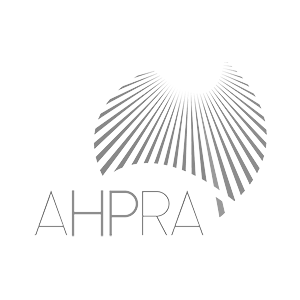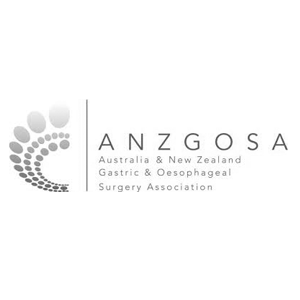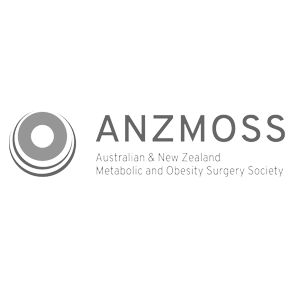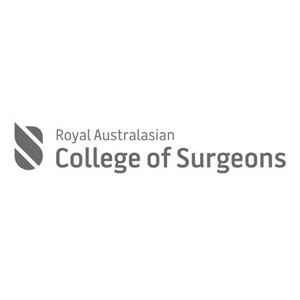Weight Loss Surgery
Home » Access and Cost » Weight Loss Surgery
A meal with solid food- 4 weeks.
The diet recovery after surgery involves 2 weeks of fluids, the rule of thumb here is that if you can suck it through a straw then you can have it. As the goal is to lose weight most patients stick with water and Very Low Calorie Diet (VLCD) shakes such as Optifast please click here for more information on fluid phase. This is followed by 2 weeks of puree diet, as the texture of this phase is strange it’s a good idea to blend meals that are already part your usual routine so that you at least have some familiar flavours.
Yes!
Once discharged from hospital the aim is to drink 1-1.5 litres of fluid per day. Formal exercise is encouraged from 3 weeks onwards, it is best to start with short walks and build up slowly from there. Aerobic workouts such as bootcamp are not recommended until at least week 5 as it takes this amount of time for most to be able to get enough calories to recover from a session. Resistance training can start from week 6.
It is best to wait until you have practiced your new slow eating technique at home before going out socially, it is not unheard of for patients to be having a good time and forget they’ve had surgery, this leads to eating a feeling of blockage below their breastbone. Once the new eating technique has become a habit going out will be much easier. You will only need to order an entre or kids meals, sharing a plate with your partner is another option. Socialising over food and drinks is best done once you have a good knowledge of what your pouch and have a plan around this in order to have a good time.
Official guidelines recommend no alcohol for 6 months after surgery. Many people start drinking after 2 months, every time you consume alcohol a mild gastritis occurs and we do not want this in the 6 weeks your stomach incision is healing. Be mindful of driving under the influence as blood alcohol levels will rise more rapidly after surgery.
For sleeve gastrectomy I recommend a multivitamin and vitamin D tablet once a day for one year and then once your routine blood panel shows no issues that regime may be relaxed. Vitamin D may also be taken as a once a week tablet or via oral drops. As gastric bypass works via malabsorption a multivitamin and vitamin D tablet once a day is recommended for the rest of your life. The supplements that are most appropriate for you will be discussed during your consult with the dietician.
Most patients would describe themselves as being fully recovered between 1-2 months post-op. It is best to have someone at home with you for at least 3 days after leaving hospital. You can drive within 4-5 days when you are sure pain won’t distract you from the road. If you have a desk job it is usually 2 weeks off work and any job with a physical component 3-4 weeks.
There should not be any heavy lifting (nothing greater than 10kg) for 4 weeks after surgery to avoid a hernia through the surgical incisions. Perfect adherence is difficult for any mum and help will be required from your family, you can minimise picking up your kids by getting them to hop on the couch next to you for a cuddle. Once the majority of your excess weight is lost it will be much easier to do activities with your children and role modelling a healthy lifestyle is a major benefit.
Every person is unique. We need to discuss your medical and surgical history, and your goals.
It is true to say for the majority of people a sleeve gastrectomy is the safest way to achieve their goals. If you have severe gastro-oesophageal reflux disease (GORD), complications of GORD such as oesophageal inflammation or you are an insulin dependent diabetic then a gastric bypass will be the recommended operation.
Sleeve gastrectomy approximately 1 hour. Gastric bypass approximately 2 hours.
Loose skin is a fact of life after rapid weight loss, some people have a small amount, some people more, all patients say they much prefer to live their lives at a reduced weight with some lose skin than the life they were living before their surgery. Factors that lead to more loose skin- if your fat distribution is mostly in the lower central abdomen causing an apron effect, if you’ve had multiple pregnancies, if you have very rapid weight loss due to poor nutrition, if you’ve been obese for many years. Patients in their teens and 20’s have remarkably elastic skin and are less likely to face these issues than patients in their 40’s. When required, body contouring surgery is usually performed once your weight has stabilised at 12-18 months post-op.
Female patients will experience some degree of temporary hair loss. It typically begins at 3 months after surgery and is due to the first 3 months being the most difficult time to consume enough protein and nutrients. It will slow down at around 9 months post-op and you will see new hair growth beginning. Hair grows back at a rate of half an inch per month. Hair loss can be minimized through consuming a high protein diet, getting sufficient calories and taking multivitamins.
Pregnancy is much safer at a lower weight, there is less risk of gestational diabetes, pre-eclampsia, post-partum haemorrhage, wound infection after c-section and a higher chance that an epidural will be effective. You will need to avoid the oral glucose tolerance test (OGT) that screens for gestational diabetes as the sugary drink used can cause palpitations and a faint. Regular appointments with a dietician who will advise you on supplements and appropriate calorie intake is essential.
Losing a large amount of weight can lead to the development of gallstones. In the general population it is estimated that 20% of adults have gallstones but only 4% develop symptoms that require cholecystectomy (gall bladder removal). The scientific literature varies with the rates of cholecystectomy after weight loss surgery, for sleeve gastrectomy the rate is 5%, while for bypass some studies report up to 30% of patients requiring cholecystectomy.
It is important that your calcium, vitamin D and parathyroid hormone be monitored to reduce the risk of osteoporosis. With a sharp decline in circulating oestrogen post-menopausal women are already at risk for osteoporosis and weight loss surgery increases that risk. A bone densitometry scan is performed to serve as a baseline test for monitoring into the future. Most sleeve patients will be able to consume enough calcium in their diet and do not require a supplement however gastric bypass patients are at higher risk of osteoporosis and hip fracture so should take calcium and vitamin D supplements.
Call us to make an appointment and bring along a referral from your GP.
At the first appointment your medical and surgical history will be taken, goals discussed, a procedure chosen and steps to prepare for surgery explained, there will of course be time to answer any questions. You will receive an information pack to read through at home.
From there, we perform a blood panel and liver ultrasound as routine pre-operative work-up. At the second and usually last appointment before surgery test results will be discussed and consent forms completed.





